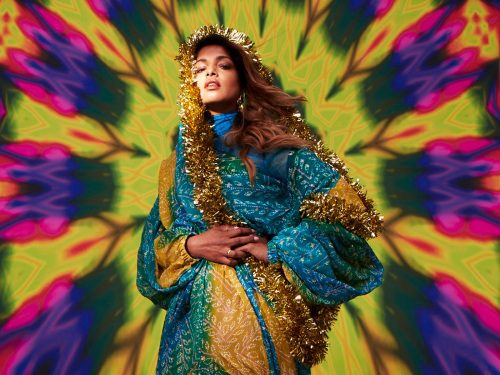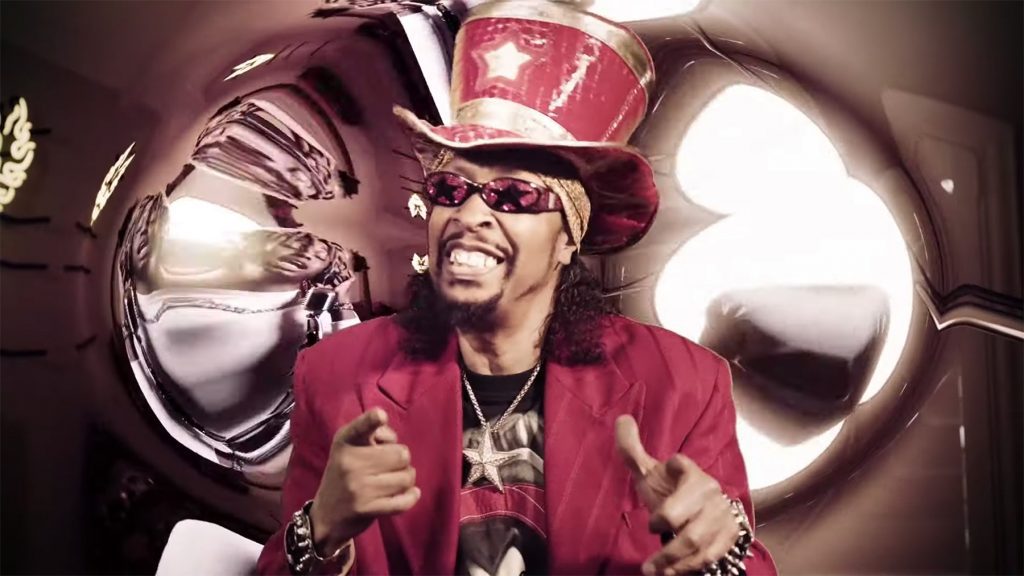
M.I.A. Looks to the Past While Trying to Wiggle Her Way Into the Moment on ‘MATA’
As a progenitor of digital DIY art and the genre-melding noise pop that preceded the likes of Death Grips and 100 gecs, M.I.A. has made a seemingly full-circle return with MATA. Her sixth studio album grasps for the past and, in other ways, wiggles right back into the zeitgeist. In the two decades since she first came to online fame with her scrappy global-sonics-sampling dance tracks, the artist born Mathangi “Maya” Arulpragasam has become both a prophetic and polarizing star who trojan horse’d raps about geopolitical violence, Western imperialism, and refugee stories into the mainstream, while racking up various controversies, both earned and unearned. (She couldn’t even avoid falling under fire during her latest album cycle: Shortly before MATA’s release, she tweeted criticism about vaccines and expressed interest in joining conservative personality Candace Owens’ talk show.)
With MATA, M.I.A. reminds listeners of the novelty of her pioneering music style, with music that harkens back to the sonic collage she established with 2005’s Arular and 2007’s Kala. The 13-track project pulsates with bouncy Moonbahton, funk carioca, children’s choirs, South Asian percussion, and Tamil film soundtracks. These far reaching sonic references still feel fresh, especially in today’s music landscape, where someone like the globe-hopping Rosalía can be a superstar and electroclash is coming back in style with the TikTok-fueled “indie sleaze revival.”
But if the album’s sound taps into well-timed nostalgia, her equally backwards-looking lyrics don’t come off as well. She continually makes nods to previous scuffles with public opinion, as on the rowdy, Priya Ragu-featuring “F.I.A.S.O.M. Pt. 2,” where she liltingly claims, “They call me, this, that, other/I think it’s funny/I tried to tell ’em somethin’/This was not ready,” framing herself as an underdog and a scorned clairvoyant even as she drops banal observations like “Freedom is a state of mind.” Though she projects confidence, it’s always in relation to overcoming the overwhelming pressures of fame; on the dance heater “Beep,” she declares that she’s realized that she “can’t please everyone,” after “trying to be everything that you want me to be.”
MATA, which has been billed as a project centered on the conflict between “ego” and “spirituality,” also sees M.I.A. leaning into braggadociousness without any clear aim. Singles like “The One,” a radio-ready hip-hop track, and the reggaeton-inflected “Popular” are catchy, but don’t offer much besides the rapper’s general self-exaltations. “I love myself/I’m living my best life” goes the hook on “Popular.”
Meanwhile, she’s more successful at self-mythologizing on songs like “Zoo Girl” and “Time Traveller,” whose playful lyrics pull specific references from her experience as a Sri Lankan Tamil refugee and third-culture kid; on the former track, she cheekily calls herself a “zoo girl straight out the wild, wild East,” and an “alien bringing unity in your face,” while the latter song builds out a futuristic image of the artist freely zooming through space and time on a “vimāna,” mythological flying palaces or chariots that are mentioned in Hindu and Sanskrit texts.
The album closes with “Marigolds,” a rap ballad mourning the apocalyptic state of the world, featuring background vocals from Lil Uzi Vert. Though the titular flowers that M.I.A. mentions are a symbol of hope and brightness, the song’s message ends up being one of despondence; when singing, “We all need a miracle,” she implies that only an act of God would be able to save the scourged planet, and that people have no power to save themselves. Singing over strummed acoustic guitar, she again refers to herself as an “oracle” and a savior who shows up “when the duty calls.” Yes, M.I.A. is still here, but it’s unclear whether she has anything new to say.





